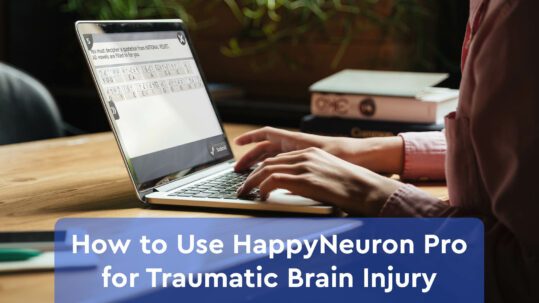3 Kinds of Therapists Who Work With Language
Language is what helps us express ourselves and understand the world around us. When the language section of our brain gets injured, it can cause a lot of secondary problems. These difficulties can cause a person to feel frustrated and isolate themselves from other people. Thankfully, there there are 3 kinds of therapists who work with people to regain their language skills.
Speech-language pathologists (SLPs)
work with patients to help them better communicate and understand language. While their focus is on the muscles surrounding the mouth and the function of the tongue, some SLPs focus on the brain as well. Speech-language pathologists can help identify whether people are having issues communicating and comprehending language. SLPs are trained to provide therapy and provide language assessments, but they can do much more.
Neuropsychologists
Neuropsychologists perform cognitive assessments and make treatment plans to help rehabilitate patients who suffer from cognitive complications. For example, if someone suffers a stroke, a neuropsychologist will examine their language and cognitive abilities. With careful testing and examination, a neuropsychologist can understand what areas of cognition are affected as a result of a person’s stroke and develop a plan to help that person get better.
Occupational therapists (OTs)
Occupational therapists (OTs) help people with daily activities needed to function in life. When someone is having difficulty with learning, focus, attention, or organization, they may consult an OT to help. OTs can help people relearn the skills needed to complete activities of daily living (ADLs) so that they can live more independently. While a lot of OTs focus on coordination and motor skills, many OTs can help with cognitive rehabilitation of language. OTs may work with a child to learn how to slow down when reading or develop the motor skills needed to learn how to write.
Conclusion
SLPs, neuropsychologists, and OTs are just 3 kinds of therapists that work with language. These therapists may work in private practice, in a small clinic, or large rehabilitation center. Sometimes, these therapists may work with patients remotely through telepractice based services. Because language a complex skill and many different conditions can impact a person’s language skills, these three therapists may work together with one patient as part of a patient’s treatment team. While these three kinds of therapists have different backgrounds, SLPs, OTs, and neuropsychologists are all passionate about helping people regain the cognitive skills they need to communicate and understand the world around them.
Fast fact: SLPs can even help people be able to swallow!
The mouth and the brain are highly connected. Speech functions and swallowing commands are not too far apart in the brain. If brain damage occurs in either one of these areas, it may affect the other. If a loved one is having difficulty speaking, you may want to consult an SLP to check to see if it is hindering their ability to swallow. SLPs can provide exercises that can help people swallow food and drinks safely to avoid choking.









